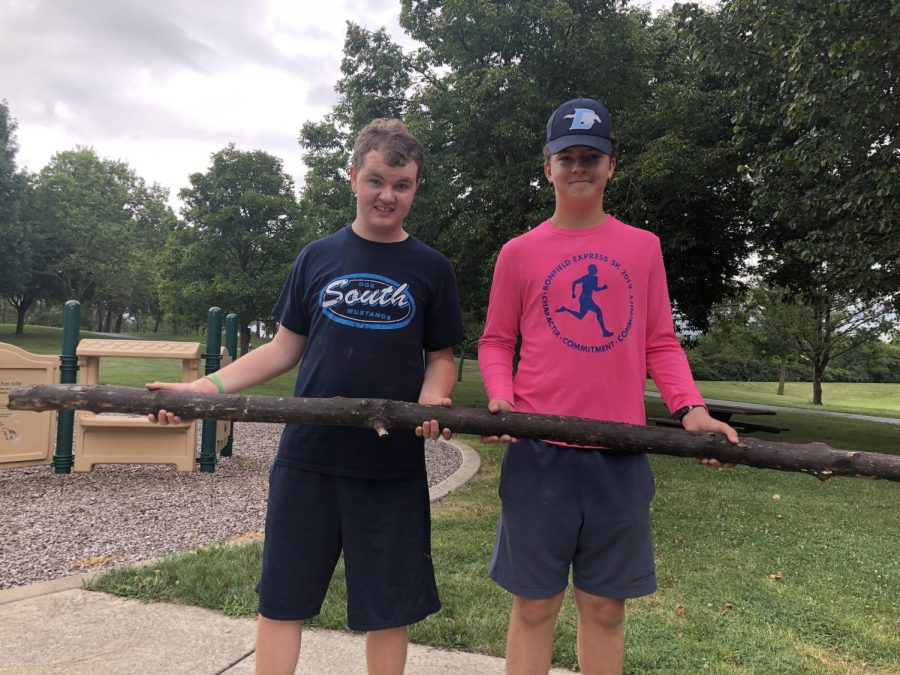Brother brings new perspective, happiness and appreciation
Living with a brother who has autism presents challenges, but also blessings.
December 13, 2022
When I tell people I have a brother with autism, their immediate reaction is to say, “I’m so sorry.” And that throws me off because I’ve never seen it that way.
My brother Andrew is 19 years old. His favorite activities are swinging, watching VHS tapes and cleaning. While Andrew can talk, most responses will be less than five words and have come from a movie.
Though Andrew will likely not get to experience the typical things you’d expect, that’s not something you should pity. Because, having a brother with special needs is an unexpected blessing.
My brother is almost always smiling. In sixth grade, I remember being bored out of my mind at my oldest brother’s track meet, as we had been there for 3 hours. I remember looking over at Andrew and seeing him smile at me.
At first this upset me, it felt like he was laughing at my unhappiness. But then I realized that he was content just being with us, and he didn’t need anything more than that. Moments like these have shaped the way I conduct myself in all areas of my life.
This constant happiness is infectious to all around him–especially me. Getting home after a bad day and seeing my brother run out of his room with a huge smile makes my problems feel a lot smaller. I truly can’t be upset around him.
Andrew’s attitude toward life puts things in perspective for me: my brother, who has a life changing disability, rarely feels a reason to be upset. This is always in the back of my mind when I consider my attitude in adverse situations. Andrew’s constant happy example forces me to have a positive attitude regardless of the situation
Beyond shaping my attitude, having the opportunity to do activities with him is always refreshing. Some of my favorite memories with Andrew are swimming in the lake at my grandma’s cottage. We’d never have deep conversations or play games, we’d just swim, and there is something special about the simplicity of that.
While I understand that autism looks very different to so many people and families, I want to change the way people view autism. I want to challenge you to not apologize, and not immediately jump to being sorry, because if my brother doesn’t feel sorry for himself, there is no reason you should feel sorry for him. Next time someone mentions someone they love has autism, try saying, “How are they?,” or “What are they like?” I think you’ll find there is a lot more to them than you’d think.





Heidi Willer • Jun 11, 2023 at 8:12 pm
You make me so proud of you! Mom